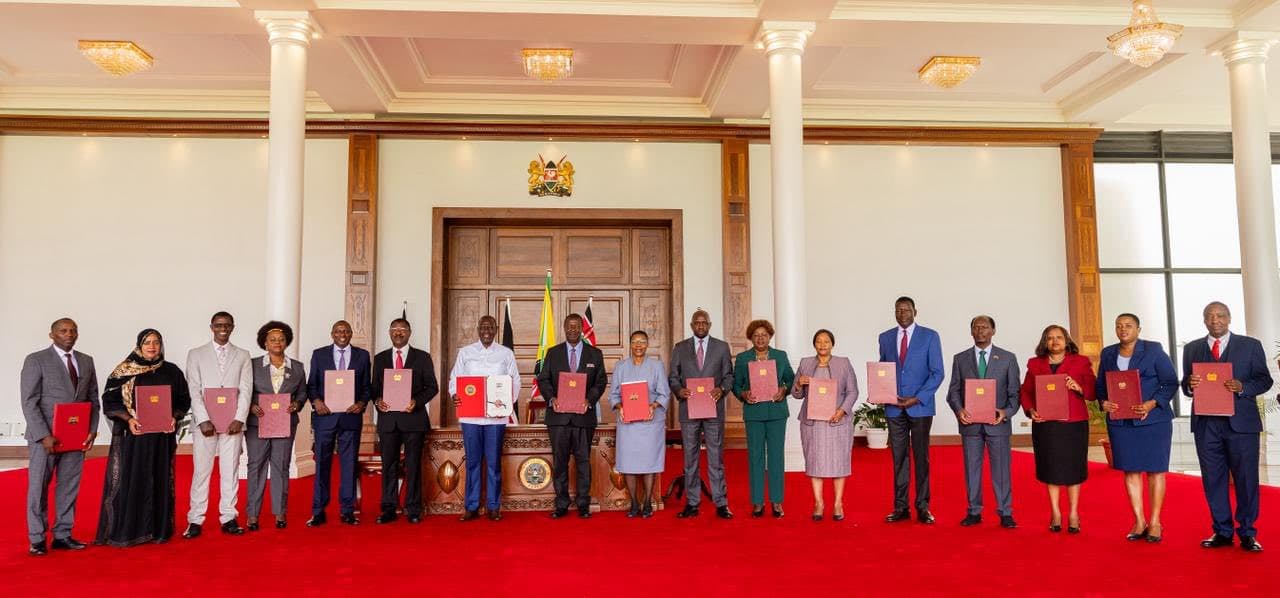We're loading the full news article for you. This includes the article content, images, author information, and related articles.
The High Court has temporarily halted the enforcement of contentious provisions within the Computer Misuse and Cybercrimes (Amendment) Act, 2024, following concerns that the law could stifle freedom of expression and privacy.

In a significant ruling for digital rights in Kenya, the High Court in Nairobi on Wednesday, October 22, 2025, temporarily suspended the enforcement of key sections of the Computer Misuse and Cybercrimes (Amendment) Act, 2024. Justice Lawrence Mugambi issued conservatory orders, effectively stopping the implementation and operation of Sections 27(1)(b), (c), and (2) of the amended Act.
The suspension follows an urgent petition filed by gospel musician and activist Reuben Kigame, alongside the Kenya Human Rights Commission (KHRC), who argued that the amendments pose a significant threat to digital freedom, freedom of expression, and privacy in Kenya.
President William Ruto assented to the Computer Misuse and Cybercrimes (Amendment) Act, 2024, on Tuesday, October 15, 2025. The law aims to update the Computer Misuse and Cybercrimes Act, 2018, to address emerging digital threats such as SIM-swap fraud, phishing, and cyber harassment. However, its passage has been met with strong opposition from civil society organisations, human rights defenders, and legal experts who contend that certain provisions are vague and could be misused to suppress dissent and curtail online freedoms.
The original Computer Misuse and Cybercrimes Act of 2018 also faced criticism for provisions that were seen as potentially infringing on freedom of expression, with some sections being challenged in court previously. The government has consistently defended such legislation as crucial for national security and combating online crime.
The contested sections of the 2024 amendment broadened the definition of cyber harassment to include online statements considered “offensive,” “indecent,” or “detrimental” to another person, even indirectly. They also empowered courts to issue restraining orders and directed service providers to release user data to aid in identifying alleged offenders. Furthermore, the amendments introduced stiffer penalties for cyber harassment, with potential fines of up to KSh 20 million or imprisonment for up to 10 years, or both.
Critics argue that the language used in these provisions is overly broad and lacks clear definitions, potentially allowing for arbitrary interpretation and enforcement by authorities. Interior Principal Secretary Raymond Omollo has defended the law, stating it expands the mandate of the National Computer and Cybercrimes Coordination Committee (NC4) to address issues like child pornography, human trafficking, and terrorism, and aims to create a safe digital environment.
The petition challenging the Act was filed by gospel musician Reuben Kigame and the Kenya Human Rights Commission (KHRC). They argue that the amendments violate Articles 31, 33, 34, 35, and 36 of the Kenyan Constitution, which safeguard privacy, freedom of expression, media independence, and access to information.
Other prominent figures and organisations, including blogger Cyprian Nyakundi and lawyer Levi Munyeri, have also supported the challenge, expressing concerns that the law could be used to silence dissenting voices and restrict media freedoms. Amnesty International Kenya has described the move as a “backslide in Kenya’s digital democracy.” Former Chief Justice David Maraga has also weighed in, cautioning that while cybercrime needs addressing, laws should not be used to “muzzle online freedoms and dissent.”
The broad and vague wording of the suspended provisions could have a chilling effect on online speech, potentially leading to self-censorship among citizens, journalists, and content creators. Digital rights advocates fear that the law could enable state surveillance and censorship without adequate judicial oversight, thereby undermining constitutional protections for privacy and freedom of expression.
While the government maintains the law is essential for combating cyber threats, the lack of clear standards for what constitutes harmful or offensive content could lead to arbitrary enforcement and potential abuse of power.
A key area of contention is the lack of specific definitions for terms like “offensive,” “indecent,” or “detrimental” content, which critics argue leaves room for subjective interpretation. There are also concerns regarding the mandatory verification of social media accounts using government-issued identification, which petitioners argue amounts to state surveillance and an invasion of privacy.
The extent of public participation in the legislative process has also been questioned, with some petitioners claiming it was inadequate.
The upcoming court mention on November 5, 2025, will be crucial in determining the next steps for this legal challenge. The arguments presented by both the petitioners and the state will shed more light on the interpretation of the contentious clauses and their potential impact on digital rights in Kenya. The outcome of this case could set a significant precedent for future legislation concerning online content and freedom of expression in the country.
Keep the conversation in one place—threads here stay linked to the story and in the forums.
Sign in to start a discussion
Start a conversation about this story and keep it linked here.
Other hot threads
E-sports and Gaming Community in Kenya
Active 9 months ago
The Role of Technology in Modern Agriculture (AgriTech)
Active 9 months ago
Popular Recreational Activities Across Counties
Active 9 months ago
Investing in Youth Sports Development Programs
Active 9 months ago